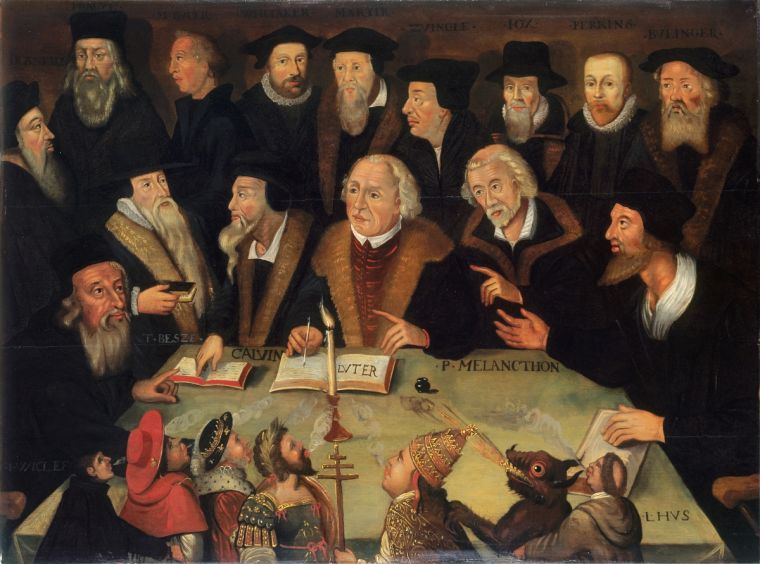Reformation 500 anniversary commemorated by Protestants and Catholics
Today marks the 500th anniversary of the start of the Reformation in 1517 and will be commemorated by Protestants and Catholics around the world.
The Archbishop of Canterbury will hold a special service in Westminster Abbey at midday celebrating a key point of agreement between the Roman Catholic Church and the Lutheran World Federation.

The day marks the moment Martin Luther submitted his 95 theses to the University of Wittenburg, allegedly by nailing them to the door of the cathedral. The event sparked an eventual split with the Roman Catholic church and saw the start of centuries of religious conflict that divided Europe into Protestant and Catholic countries.
The service will celebrate the Joint Declaration on the Doctrine of Justification - a major document agreed by the two Lutheran and Catholic bodies in 1999 after years of study. It resolves the most contentious issue between them, dating back to the Reformation – how does someone go to heaven?
The Declaration has been affirmed by the World Methodist Council, the World Communion of Reformed Churches and the Anglican Consultative Council (ACC) passed a resolution in 2016 that 'welcomes and affirms the substance of the Joint Declaration on the Doctrine of Justification'.
During the service Justin Welby will present copies of the ACC's text to Roman Catholic and Lutheran representatives.
The Bishop of Coventry, Rt Revd Dr Christopher Cocksworth, said: 'The Joint Declaration was a historic breakthrough in overcoming the divisions that emerged from the Reformation through a fresh statement of its key concern, how sinners can be put right with God and empowered to live in a new way. The good news of forgiveness and freedom through Jesus Christ is what unites us as Christians. It's the word of grace and hope that – together – we want to share with all the world.'
Pope Francis is also marking the occasion telling Derek Browning, moderator of the presbyterian Church of Scotland, there was 'true fraternity' between the two churches. After five centuries of tension the two traditions were 'no longer ... adversaries, after long centuries of estrangement and conflict', the pontiff said.
'For so long we regarded one another from afar, all too humanly, harbouring suspicion, dwelling on differences and errors, and with hearts intent on recrimination for past wrongs.'
A spokeswoman for the Catholic church in England and Wales said: 'The desire for reconciliation is such that mistakes can be recognised, injuries can be forgiven and wounds healed.
'We give thanks to the joy of the gospel we share as Christians, express repentance for the sadness of our divisions and renew our commitment to common witness and service to the world.'











